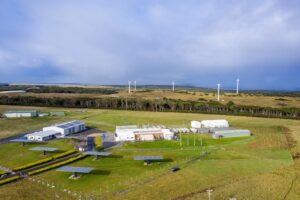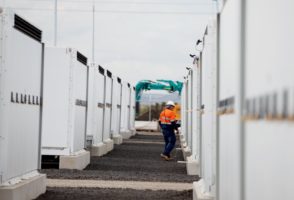A ‘ground-sparing’ economic report on biodiversity indicates that economic practice will have to change because the world is finite.
For decades many have been aware of this reality, but it is a giant leap forward for current economic thinking.
Climate change is but a symptom of a larger issue, the threat to our life support systems from the plunder and demise of our natural environment.
Society, some governments and industry are recognising that climate change can be controlled by replacing fossil fuels with renewable energy, electric cars and by reducing emissions from every means of production.
We can then live happily ever after in the glories of consumerism provided by an unchanged economy –or so they imagine.
To have to consider the more fundamental issue of environmental collapse is much more threatening to those imbued with the current market society for it spells the need for a complete change in economic thinking based on the realities of a finite world.
The Dasgupta Report
A landmark economic report raises this spectre and is important not only for its content but because it was commissioned by the UK Treasury to set the agenda for the UKs 25 year environmental development plan.
The report “Economics of Biodiversity” by Emeritus Professor Sir Partha Dasgupta from the Faculty of Economics, University of Cambridge is a crucial educational exercise for governments which without exception place current economic thinking at the forefront of policy.
The stated rationale is “Nature is a “blind spot” in economics. We can no longer afford for it to be absent from accounting systems that dictate national finances, or ignored by economic decision makers”.
In the Forward David Attenborough writes;-
“We are facing a global crisis. We are totally dependent upon the natural world. It supplies us with every oxygen-laden breath we take and every mouthful of food we eat. But we are currently damaging it so profoundly that many of its natural systems are now on the verge of breakdown. Every other animal living on this planet, of course, is similarly dependent”.
The fundamental contention of the review is that Gross Domestic Product (GDP) is no longer fit for purpose when it comes to judging the economic health of nations.
It is “based on a faulty application of economics” that does not include “depreciation of assets” such as the degradation of the biosphere.
The biodiversity crisis is explained in simple economic terms. As we produce GDP, we extract resources from nature and dump waste back into it. When extraction and dumping exceeds nature’s capacity to repair itself, natural capital shrinks as do essential environmental services.
Dasgupta gives the simple example of the woodland destroyed to build a shopping centre or housing estate.
GDP records an increase in produced capital, but no depreciation of the “natural capital” that absorbs carbon, prevents soil erosion, creates a habitat for much-needed pollinators, and provides direct benefits to us – from recreation to purified air – that reduce burdens on health services.
Such environmental losses carry economic costs.
Such events are happening in NSW and Queensland at this very moment with development requiringthe destruction of “koala habitat”, but the loss is much greater than that of the koala.
In a commentary on the Dasupta report entitled “How should economists think about biodiversity?”
“The Economist” notes that between 1992 and 2014, the value of the world’s produced capital, for example such as machines and buildings, roughly doubled, that of human capital (workers and their skills) rose by 13%, while the estimated value of natural capital declined by nearly 40%.
To stop natural capital declining by 2030 while maintaining current growth trends would require growth in efficiency of an impossible 10% a year instead of the current 3.5% p.a.
In effect the report fits with the Global foot print finding that humanity’s consumption of natural resources requires 1.6 Earths to live on. For Australia this would be three Earths.
The implications for Australia
The implementation of such a report would require a revolution in economic thinking leading to a profound change in the way we live. Many working in environmental science have known this for decades but the barrier to change is economic and neo-liberal belief.
This report opens a window to breathe the fresh air of new thinking for economists to change the minds of governments they serve.
Dasgupta’s Review demands the transformation of our institutions and systems – particularly finance and education – to enable these changes and sustain them for future generations.
This includes increasing public and private “financial flows” that enhance natural assets, and decreasing those that degrade Nature.
These implications for Australia are massive.
In the present huge financial spend to save the nation from the economic impacts of Covid, it is doubtful if these sustainability issues have crossed the mind of Philip Lowe or the Treasurer as relevant to a post Covid economy.
Currently the minds of most members of parliament should be focused on the review of the EPBC Act by Professor Samuel which confirms the rapidly diminishing capital of our natural environment.
The government’s response described eloquently by the late Mungo MacCallum has been to deny effective reform in favor of handing control to the states with a record of environmental malfeasance.
The inevitable outcome will be a further reduction of environmental capital.
Recently the EU, UK and G7 countries have initiated pressure on Australia to develop an effective climate policy or trade deals might be compromised.
Indeed a carbon border adjustment mechanism may be used which will impose a carbon price on imports from countries with poor climate polices.
It is perhaps surprising that a government so disorganised over Covid could entertain and then commission a revolutionary environmental report such as “Economics of Biodiversity’ but it suggests that it will be the basis for future government policy.
So in addition to climate policy there is likely to be additional pressure on Australia over its abysmal environmental policies. Bring it on.
Dr David Shearman AM PhD FRACP FRCPE, Emeritus Professor of Medicine, University of Adelaide and Co-founder of Doctors for the Environment Australia






